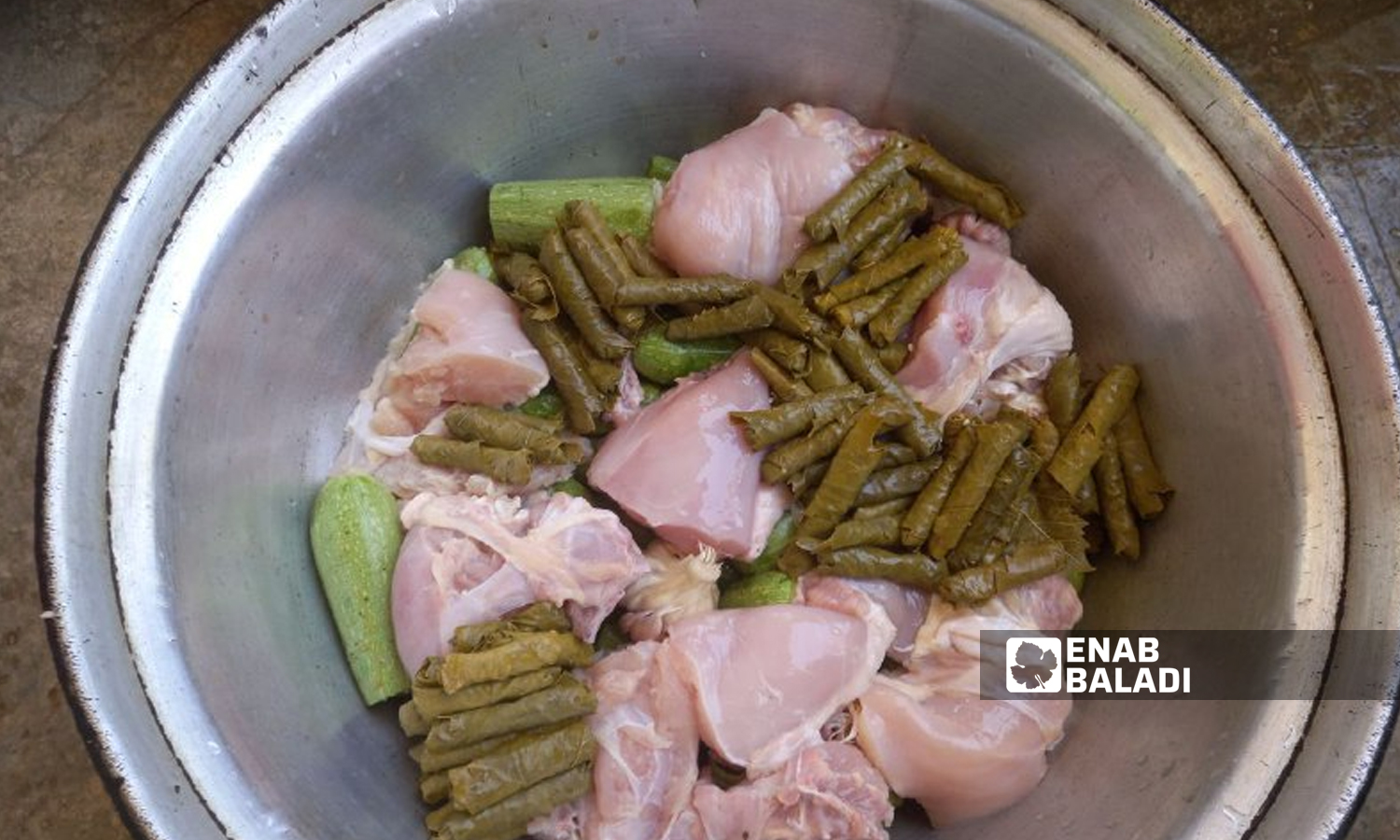



Enab Baladi – Daraa
The grapevine leaf picking season is an important season for many families in the southern governorate of Daraa as many depend on harvesting and selling them as a source of livelihood, while others are content with picking the leaves as seasonal supplies.
Housewives used to freeze these leaves to cook them in the winter, and due to the chronic electricity outages, women resorted to inventing new ways and ideas for storing grape leaves, which are used in basic popular foods, known by their Arabic names such as “Yabraq” and “Yalanji.”
Salma, 33, and many other women in the southern province came up with the idea of keeping grapevine leaves in containers filled with water and some salt.
Salma, a housewife from the Houran plain, said that in the event of long power cuts, large batteries are the main alternatives, but the high prices cast a shadow even on those alternatives, which made it difficult for housewives to secure supplies of frozen vegetables, including grapevine leaves.
During the summer, housewives in Daraa and throughout Syria struggle to prepare winter supplies, such a process that is preceded by long weeks of preparation and many steps.
Storing grape leaves is one of the basics for most families in Daraa, despite the cost and effort.
Salma, like many housewives, begins at the beginning of May each year by picking grape leaves from her vineyard in order to collect them and store them for the winter.
Usually, she chooses the medium-sized leaves, and then she trims the small twigs. After that, she stores the leaves in soda cans filled with water and salt.
Salma told Enab Baladi, “From the mouth of the bottle, I insert the leaves, each one separately, then I try to fill the bottle, which can accommodate approximately one kilogram.
Salma stores about 10 kilograms for the Yabraq meal, which is one of her family’s favorite foods, and storage in this way is “healthy and does not require preservatives or refrigeration,” especially after the daily power outage.
Residents of southern Syria are subject to harsh electrical rationing, only four hours of electricity per day, and this rationing was sufficient reason to cancel the idea of storing frozen supplies, Salma says.
The price of 1 kg of grape leaves has reached about 8,000 Syrian pounds, and some families resorted to planting grapevines at the entrances to the houses after the farms were damaged and the planting of trees in general, including grapevines in Daraa.
The trading rate of the US dollar against the Syrian pound reached 3,970 pounds, according to the Syrian Pound Today website, which specializes in exchange rates and foreign currencies.
Umm Hassan harvests grape leaves from her ten dunums vineyard and sells the product to families after prior demand.
The 40-year-old woman told Enab Baladi, “I earn the equivalent of 20 kilograms per day, and all quantities are sold for storage or for cooking directly.”
Umm Hassan takes into account the necessity of selecting grape leaves in a way that does not affect the production of the vine, as the leaves provide food for the vine and protect it from direct sunlight.
The leaves picking must be done with caution and expertise, she concluded.
The agriculture of grapes in southern Syria has declined during the past years due to the lack of irrigation water, according to Abu Hassan, 63, who has a farm in the western countryside of Daraa.
“The scarcity of water led to the stunting of trees, which caused a gradual decline in production, leading to the logging of grapevines and pushing the farmers to plant olives and pomegranates in their vineyards,” Abu Hassan said.
Every year the vineyards decrease, which means that grape vineyards are likely to become rare if this situation continues, farmers warn.
Also, the decline in cultivation has led to a rise in the prices of grape leaves in the local market, Abu Hassan added.
if you think the article contain wrong information or you have additional details Send Correction